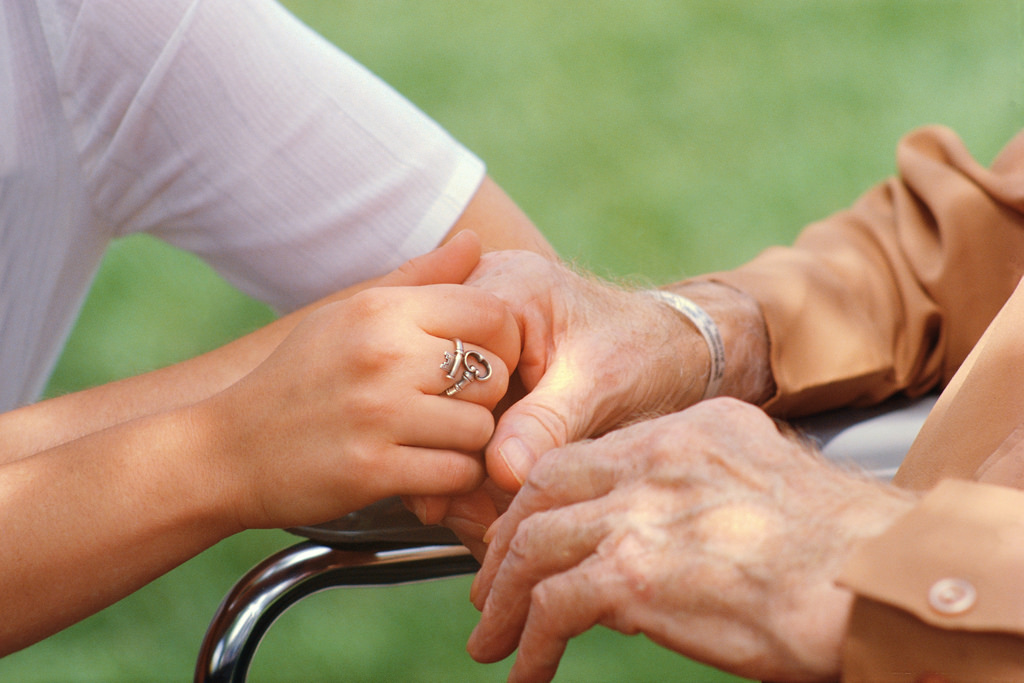Story via Ottawa Citizen—byline: Mohammed Adam
In the wake of video images showing a caregiver repeatedly punching a resident of a city-run long-term care home, it’s worth noting that personal support workers in general are also taking a pounding over these reports.
To hear their side of the story and understand what the job is really like, I interviewed a number of caregivers – and the result was a fascinating glimpse into the tough and unheralded life of a personal support worker.
The attack in a city-run long-term care facility on 89-year-old Georges Karam was inexcusable, but long-term care homes are no dens of abuse. Personal support workers don’t prey on seniors. They do the most menial of jobs in the service of the elderly, and they do them with compassion and devotion.
Three caregivers agreed to an interview on condition that I not use their real names or identify their places of work. They fear losing their jobs. So: Betty, Johnson and Prudence.

“They make us look like bad people, but when I think of the way I look after the old people – clean their waste, bath them, groom them, feed them, laugh, and sometimes cry with them – I don’t understand why they are saying all these bad things about us,” says Betty.
Combined, the three have 60 years of caregiving at Ottawa long-term care homes. They are in their 50s and 60s and work at different homes. Combined, they have 10 children, half of whom have finished college. Two work full-time and one is a part-timer. Each worker takes care of seven to 12 residents on a shift, working up to 12 hours a day. The usual practice is to work the regular eight-hour shift at one home, then do four-hour part-time stints at another.
All took up caregiving because they were looking for a steady job and had between six and 12 months of training. They readily admit that it is a tough, demanding job that needs getting used to. They basically act as a life-support system for a group of people who often cannot take care of themselves. They clean, wash, feed, give medication and do all the basic things that the elderly in their care need in order to live in some comfort in their twilight years. And they put up with a lot of grief.
The hardest part of the job, caregivers say, is dealing with people who have dementia or are somewhat mentally impaired. They are prone to sudden mood changes that can turn violent quickly. Then, they are difficult to handle. Verbal abuse is fairly common, but caregivers also have been spat on, hit, punched, even bitten. “There are times when I come home with scratches all over my arms. I shake my head when I hear that we abuse the residents,” says Prudence. And some family members can be insanely demanding, adds Johnson. You just learn to roll with it, he says.
The PSWs admit mistakes happen. People get tired or frustrated and miss things. They acknowledge the assault on Karam is indefensible, but say such incidents are rare. Over time, caregivers bond with the people in their care and just can’t hurt them. For residents who often don’t have visitors, the PSWs become something of a surrogate family, their only means of companionship.
The caregivers hear life stories of the people in their charge – the adventures, the wonderful lives lived – and it is heart-breaking to see people who were once full of zest become helpless in old age. Some of them break into tears as they remember a life once lived, and Betty says it forces the caregivers to confront their own frailty and mortality. “You think, ‘this could be me one day,’ and you can’t be anything but compassionate,” she says.
And most families seem to appreciate the care. “You see somebody in the street, they recognize you, and they don’t stop thanking you for what you do,” Johnson says. “They know we are not bad people.”
Let us all remember that even as we seek reform.
*Feature image via Flickr user familynursingcare




